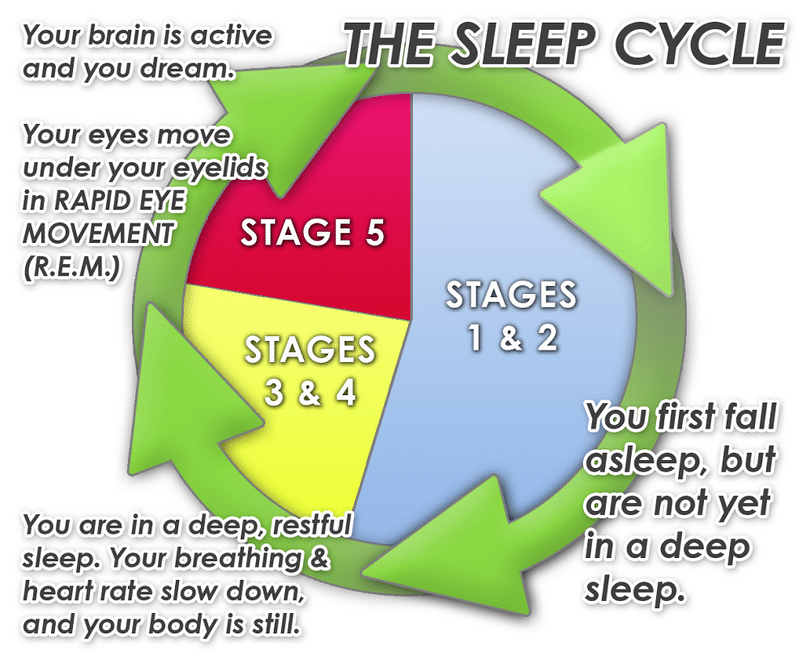In a normal healthy sleep period a person will experience 4 6 sleep cycles

In a normal, healthy sleep period, a person will experience 4 - 6 sleep cycles.
Sleep is an essential aspect of our lives that allows our bodies and minds to rejuvenate and recharge. During sleep, our bodies undergo several sleep cycles, each consisting of different stages. These sleep cycles are crucial for maintaining optimal health and well-being. It is generally accepted that in a normal, healthy sleep period, a person will experience 4 - 6 sleep cycles.
What are sleep cycles?
Sleep cycles refer to the repeated patterns of brain activity that occur during sleep. Each sleep cycle consists of different stages, namely, NREM (non-rapid eye movement) sleep and REM (rapid eye movement) sleep. NREM sleep further has three sub-stages: N1, N2, and N3. REM sleep is commonly associated with vivid dreaming.
Understanding the sleep cycle
The sleep cycle begins with N1, which is a transition phase between wakefulness and sleep. During this stage, individuals may experience a sense of drifting or falling.
After N1, the individual enters N2, which is a state of light sleep. The body temperature decreases, and the heart rate slows down during this stage. It is during N2 that the majority of our sleep occurs.
The deep sleep stage, N3, follows N2. This stage is also known as slow-wave sleep. During N3, the body repairs tissues, boosts the immune system, and releases growth hormones. It is the most restorative stage of sleep.
The last and crucial stage of the sleep cycle is REM sleep. REM sleep is characterized by rapid eye movement and vivid dreaming. During REM sleep, the brain is highly active, and it is believed to play a crucial role in learning, memory consolidation, and emotional well-being.
Duration of sleep cycles
On average, an entire sleep cycle lasts for about 90 to 110 minutes. However, the duration of each stage within the sleep cycle varies. On average, N1 lasts for about 5-10 minutes, N2 for about 50-60 minutes, N3 for about 20-40 minutes, and REM sleep for about 10 minutes. The duration of each stage may vary depending on factors such as age, sleep quality, and individual differences.
The importance of multiple sleep cycles
Experiencing multiple sleep cycles is crucial for ensuring a restful and restorative night’s sleep. Each stage of the sleep cycle serves a specific purpose and contributes to overall well-being. The repetitive nature of sleep cycles allows the body to go through multiple rounds of essential physiological processes, promoting physical and mental health.
Inadequate sleep cycles can lead to various negative effects, such as daytime sleepiness, impaired cognitive function, decreased focus and attention, mood disturbances, and weakened immune system. Chronic sleep deprivation or disruption of sleep cycles can even increase the risk of developing chronic health conditions like cardiovascular diseases, obesity, and diabetes.
Conclusion
Understanding the structure and importance of sleep cycles is vital for maintaining good sleep hygiene and optimizing overall health. By ensuring that we allow ourselves to experience 4 - 6 sleep cycles during a normal, healthy sleep period, we give our bodies the opportunity to fully recharge and rejuvenate. Prioritizing sleep and creating a conducive sleep environment can significantly improve our well-being and quality of life.
For more information on sleep cycles and the importance of sleep, you can refer to the source here.
Images:
Sleep Cycle Graphic:

Typical Sleep Cycle:

Tags
Share
Related Posts
Quick Links
Legal Stuff

